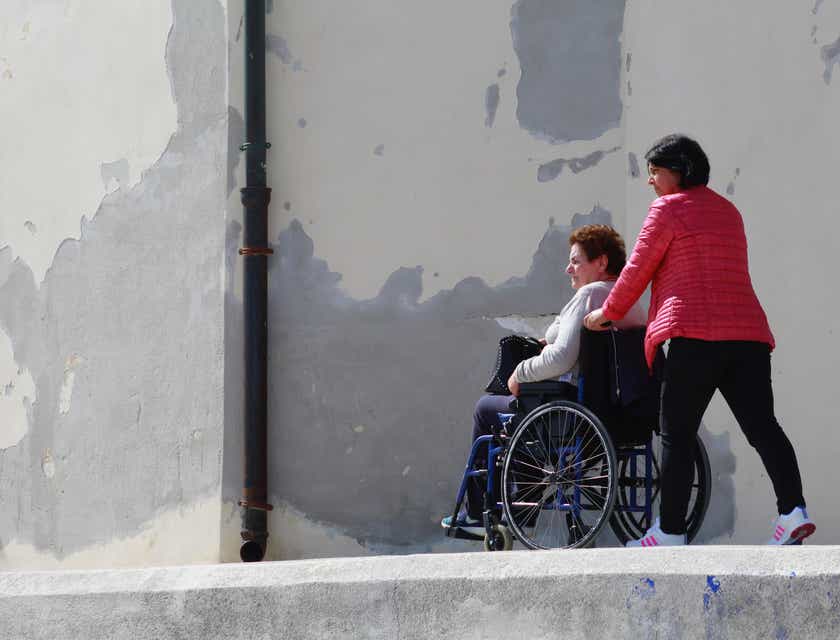“When am I coming to live with you?” she asks almost every time I see her. My elderly mother lives alone and as days pass, it’s becoming apparent that she will soon need more help with her activities of daily living. She refuses to think of moving to assisted living and doesn’t want a “stranger” or a professional caregiver in her home. But a high second floor, and its myriad of stairs, is not elder-friendly. When I ask if she’d entertain the thought of living with my brother, in his one-story house, she looks at me as if I’d grown horns. No, she tells me, I’m the only one she would live with because, after all, I’m her daughter.
A recent study presented at the American Sociological Association‘s 109th Annual Meeting shows that female siblings are more likely to provide the lion’s share of elder caregiving in the family.
Study author Angelina Grigoryeva, doctoral candidate at Princeton University’s Office of Population Research, analyzed data from the 2004 Health and Retirement Survey (HRS) survey of more than 26,000 Americans over the age of 50. The detailed questionnaire asked older Americans which tasks they need help completing, who helps them, and the length of time each person administered help.
The study showed that daughters average 12.3 hours of senior care each month, while sons provide only 5.3 hours.
“In other words,” says Ms. Grigoryeva, “daughters spend twice as much time, or almost 7 more hours each month, providing care to elderly parents than sons.” And it doesn’t matter if the daughters have their own children to care for, or have employment outside the home. According to Ms. Grigoryeva, daughters provide as much (care) as they can with given constraints, but sons provide less (care) regardless of constraints.
This finding is significant in many ways. First, it shows that while gender equality may be making strides in the workforce and with childcare, inequality is alive and well when it comes to eldercare. And because of the time demands of senior care, woman can suffer in their career opportunities and earnings. Caregivers endure financial burdens, as many caregiving costs are paid for out-of-pocket.
Caregiver health can suffer as well, due to caregiver stress. According to the National Alliance for Caregiving, caregivers struggle finding time for themselves, managing physical and emotional stress, and balancing family and work obligations. The stress has also been shown to result in a higher mortality rate.
So what’s the answer? How do we begin to change the societal view of women as primary caregivers? While sons tend to provide care in the way of physical activities, such as home maintenance, daughters are relied upon to provide emotional and more personal care. What can we do to make the level of care provided more equitable between siblings?
Main Menu
Main Menu
Main Menu







